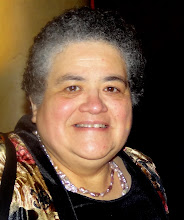
Check out for Dry Bones cartoons and cards
My daughter and her husband came to Kol Nidre services with me tonight; they also brought Ari's best friend from law school, Natalie, a sweet Irish-Catholic girl who had never been to a Jewish service. I was glad Ari was there because I was so nervous. I almost never speak from a text because I have no nerves when talking to undergrads. But tonight, many of my colleagues were there as well as a number of former students. Moreover, I had never done a sermon before and I was uncommonly nervous. I had even tried rehearsing it and had kept stumbling but when I got to the podium and started to speak, the nerves melted away and it all flowed. What a relief that's over! Whew!
Ari said that she was surprised that I had done it so Talmudically, meaning that I had really stuck to a commentary on the texts in the Mahzor (the High holyday prayerbook) but that's what I was asked to do, what we call a Drasha. It ran about 12-15 minutes.
If you are interested, here it is. One note of explanation: Alan Shawn Feinstein is a local philanthropist who gives huge amounts of money to almost anything you can think of in Rhode Island. I have often heard him criticized for his conspicuous giving but I admire him because he is so generous and seems to be genuinely kind. He supports the food banks and leads the movement to end hunger in RI.
The Drasha: Kol Nidre 5770 (2009-2010)
Read together, the scriptural portions for Erev Yom Kippur and the Yom Kippur day services offer complex lessons that flow together but are not identical. Together they emphasize the collective responsibility we have to each other; a lesson that in this age of rebuilding New Orleans, massive American unemployment, and people losing their health care and retirement funds, we must heed and act upon.
Kol Nidre begins with a heartrending melody that brings to mind all the exiles of the Jewish people, when we were forced—in order to survive—to hide, to practice our faith underground, and to make false promises. From the forced exile from Jerusalem by the Romans, to the Spanish Inquisition, to the pogroms in Russia and Poland, onward, our people been victims and have justifiably done what we could to survive. But Kol Nidre is only the beginning of this night of remorse and contrition. We ask for forgiveness for acting out of fear; for failing to have perfect faith. But these historical tragedies are at a remove; they didn’t happen to us or our families, though those some of us may still have grandparents who fled Europe or lost relatives in the Holocaust.
I have often wondered if all of those who went to their deaths in the gas chambers singing “Ani ma'amin be'emuna shlema,” “I believe with perfect faith in the Messiah's coming, and I will wait even if the Messiah is delayed,” were bound to chant the Ashamnu. Of course, as members of the community, they did. And if they were herded into the gas chambers on Yom Kippur, at Kol Nidre, were they exempt? Whose faith could have been more perfect?
The Ashamnu, the alphabetical prayer of confession, does not require us to call out our individual sins. It isn’t like a Quaker meeting where some, individually, express their thoughts into a weightless silence. The confession or Ashamnu names every sin that every Jew in the world might have committed, and we express our remorse as we go through the list alphabetically: We have Acted out of malice; we have Back-bitten; we have been Contemptuous; we have Double-crossed…and so on. We recite these the way we eat popcorn: done quickly and without much thought.
There are other sins that aren’t listed—yet. Let us think back to Michael Milken who, because of his junk bond ventures, left retired people with nothing but social security for their old age.
Let us think of Bernard Madoff, who made off with millions of dollars and thus destroyed people’s retirement funds; deprived and destroyed charitable organizations; victimized his own people and the thousands and millions, Jews and Gentiles alike, who depended on those charities.
Or think of the rabbis, like Rabbi Israel Weingarten of Brooklyn, who have been accused of molesting their or others’ children.
Or think of some of the Israeli actions in Gaza during the invasion last year, where members of the IDF have come forward to denounce the killing of innocents who were killed for no reason by their own forces. Will we then recite, we bombed a house where a doctor lived with his daughters, and we killed all of his daughters?
In our own backyard, think of the resentful comments I have heard people express of Alan Shawn Feinstein and his noticeable acts of charity. Is it guilt that we do not act as generously as he does, within our means? We judge him: He should be less conspicuous in his generosity for Maimonides teaches us that the highest form of giving is to give anonymously. While that is one of Maimonides teachings, it is not the only level of giving, and it is not even the highest one. There are actually eight levels. Each ascending rung represents a higher degree of virtue:
1. The lowest: Giving begrudgingly and making the recipient feel disgraced or embarrassed.2. Giving cheerfully but giving too little.
3. Giving cheerfully and adequately but only after being asked.
4. Giving before being asked.
5. Giving when you do not know who is the individual benefiting, but the recipient knows your identity.
6. Giving when you know who is the individual benefiting, but the recipient does not knows your identity.
7. Giving when neither the donor nor the recipient is aware of the other's identity.
8. The Highest: Giving money, a loan, your time or whatever else it takes to enable an individual to be self-reliant.
And who are we to criticize Mr. Feinstein when most of us may make it to level 4, “without being asked”; or even six, “where the recipient does not know your identity,” but we still fall short of perfect charity.
These specific examples are not the distant, recited alphabetical sins of the Ashamnu; these are real and they hit close to home. They can be included in the more detailed Al Cheyt, the Great Confession of the Morning Service for they are not the mere labeling of a catalog of sins but force us to express the deep consciousness of sin. You may ask how can I be responsible for Milken or Madoff’s thievery? Or for what happens in Gaza, so far from me? Or sins of molesting children, so far from most of our lives? We can accept responsibility for the small stuff, for our own lack of charity, for our petty resentments and our falling short of our own ideals, but the conundrum with which we are presented by the Yom Kippur prayers is that we are collectively responsible: we stole; we deprived others; we caused grievous injury. It is a bitter pill to internalize these sins, to take responsibility for them, and ask forgiveness for them. But Yom Kippur wears us down; we declare our sins again, and again until we accept the responsibility.
But the teaching of Yom Kippur doesn’t stop there, for in the morning service, Isaiah calls upon us to care for the poor and the downtrodden, “...to breathe new life into the humble. To renew the heart of those who are crushed.” This is not simply spiritual cleansing but an affirmation of life, of collective responsibility for those less fortunate than ourselves. It is not enough then, to repent, express remorse, and be cleansed over and over. You could do that and leave the synagogue in a purified state without having made your life better. Isaiah is relentless, “Look here; on the day you fasted you were looking for business, Grinding down the toilers who work under you!”
“Is not this the fast I ask for: To unlock the shackles of evil, To loosen the thongs of the yoke, To send forth crushed souls to freedom, To tear every yoke in two! To tear up your loaves for the hungry, To bring the poor wanderer home, When you see the naked, clothe them… Your reputation for justice will precede you And the glory of God will follow close behind.”
On Yom Kippur afternoon, we are reminded that even complying with those prescriptions isn’t enough. In the afternoon service, we are taught two lessons of perfect faith, of Abraham, asked to sacrifice his only son; and of a virtuous man, Jonah who, told by Adonay to go to the City of Nineveh to warn them to repent or face his wrath, refuses.
Adonay chooses him BECAUSE he is virtuous but Jonah is content with his life and he does not want to save them; they are sinful; let them reap the wages of sin. Adonay is relentless, he casts him into the belly of a whale and compels him to go to Nineveh. Jonah rebels; he doesn’t want to do it but Adonay teaches him compassion; explicitly compassion by causing him to endure the discomfort of direct sun; then creating shade and thus, comfort for him, then taking it away, making him so miserable that Jonah wanted to die. (This translation is a bit different from the one in your Mahzors.)
“And Adonay said, ‘You have pity on the gourd, for which you have not labored, neither did you make it grow; which came up in a night, and perished in a night; and should not I have pity on Nineveh, that great city, wherein are more than six-score thousand persons that cannot distinguish between their right hand and their left hand, and also much cattle?” These are Adonay’s children; Adonay’s creations that she labored over. How can she destroy them willy-nilly?
In essence, Adonay cares enough to want to turn her creations away from sin and save them; she knows that humans are not always aware of or responsive to her, but they cannot ignore we who stand there in our flesh and blood, to turn them towards virtue. This is not the wrathful God that we are told resides in the Bible. This God is a compassionate God. Who are we to judge and withhold help from those we decide are unworthy when Adonay worries over their failings?
In Jonah, we see the fulfillment of Ashamnu and Al Cheyt, of Isaiah. Reciting these prayers, we admit our failings, we express remorse, and we repent of our own failings but it isn’t enough. We reach to help the helpless, but THAT isn’t enough. Our souls may be cleansed and we may feel righteous but Jonah teaches us that we cannot stand passively by, enjoying our own virtuousness. We cannot be passive; we are compelled to act. We must work with others to make the world a better place
